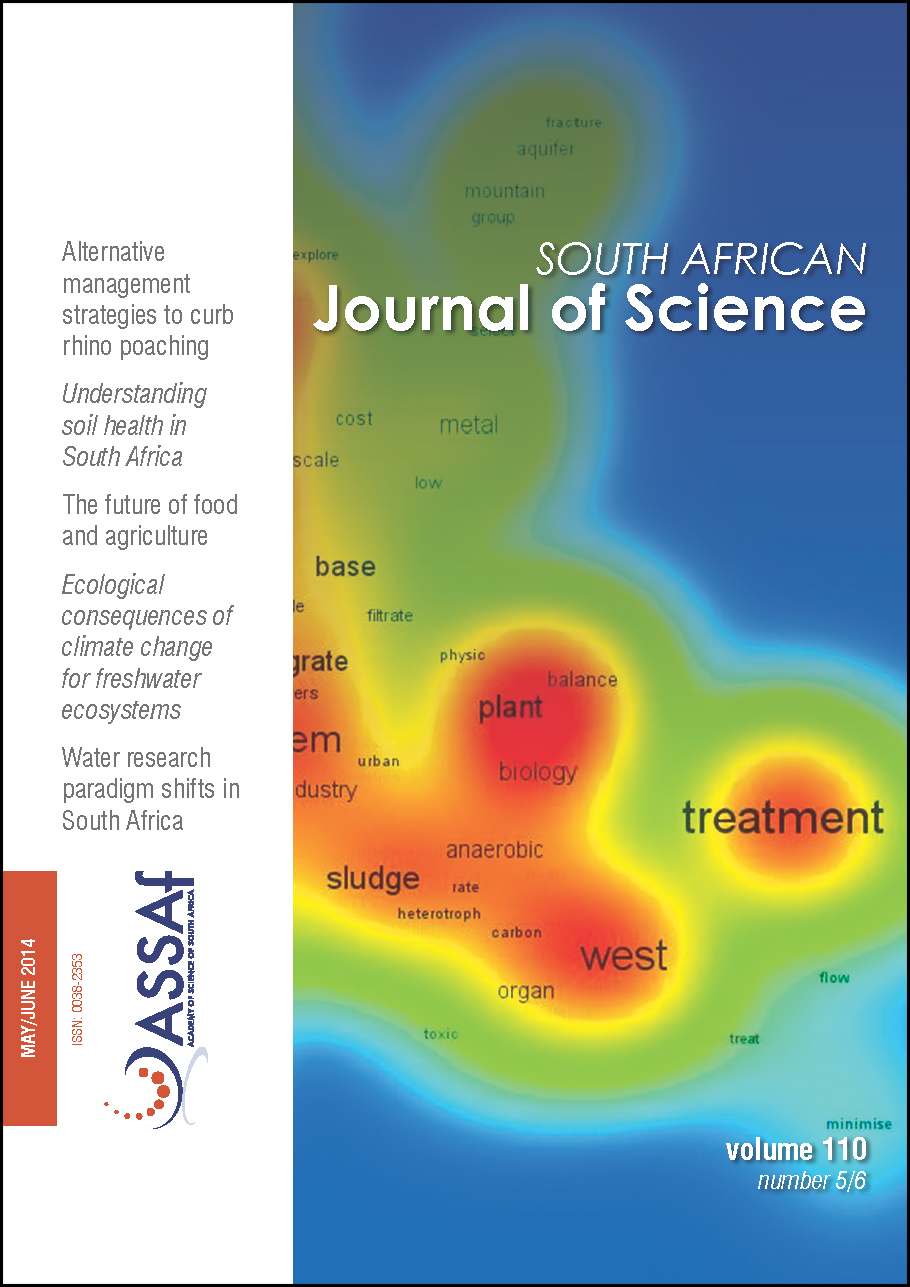Ecological consequences of global climate change for freshwater ecosystems in South Africa
DOI:
https://doi.org/10.1590/sajs.2014/20130274Keywords:
temperature, flow regimes, habitat, biological assemblages, conservationAbstract
Freshwater resources in South Africa are under severe pressure from existing anthropogenic impacts and global climate change is likely to exacerbate this stress. This review outlines the abiotic drivers of climate change, focusing on predicted changes in temperature and precipitation. The consequences of global climate change for freshwater ecosystems are reviewed, with effects grouped into those related to water quantity, water quality, habitat and aquatic biological assemblages. Several guiding principles aimed at minimising the potential impact of climate change on freshwater ecosystems are discussed. These guidelines include those focused on water quantity and the maintenance of appropriate environmental flows, integration of global climate change into water quality management, conservation planning for freshwater biodiversity, the promotion of ecosystem resilience, and extending climate change science into policy and public discourse. Proactive assessment and monitoring are seen as key as these will allow for the identification of ecological triggers and thresholds, including thresholds of vulnerability, which may be used to monitor and inform decisions, as well as to improve the ability to forecast based on this knowledge.
Published
Issue
Section
License

All articles are published under a Creative Commons Attribution 4.0 International Licence
Copyright is retained by the authors. Readers are welcome to reproduce, share and adapt the content without permission provided the source is attributed.
Disclaimer: The publisher and editors accept no responsibility for statements made by the authors
How to Cite
- Abstract 1594
- PDF 1541
- EPUB 218
- XML 227













.png)